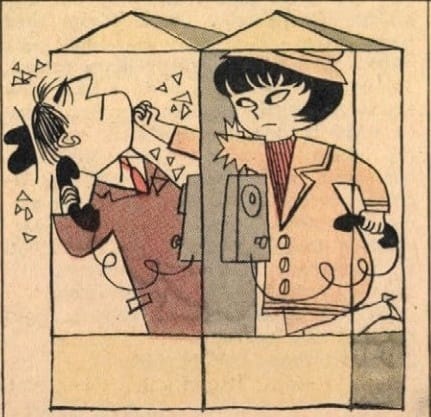The Universal Language of Goku and Arson
And a short time in a short bus.
1 May, 2023 | Seoul, South Korea
On May 1, 1886 over 300,000 workers joined a general strike in the United States in support of an 8-hour work day. In Chicago, the police responded to the demonstration by firing live rounds into the crowd, killing two. In response to that, a rally was held in the Haymarket Square on May 4th. As it was winding down around 10:30pm, police marched in en masse and instigated a firefight with angry, armed demonstrators. Seven policemen and at least four workers were killed. Eight people were caught up in the resulting dragnet - only two were actually at the rally - and after a trial beset by prejudice and flimsy evidence, four were executed on 11 November 1887.1
May 1 was chosen for International Workers Day in honor to the martyrs of the now-famous Haymarket Affair. Today it is celebrated in 80 countries officially2, including South Korea:
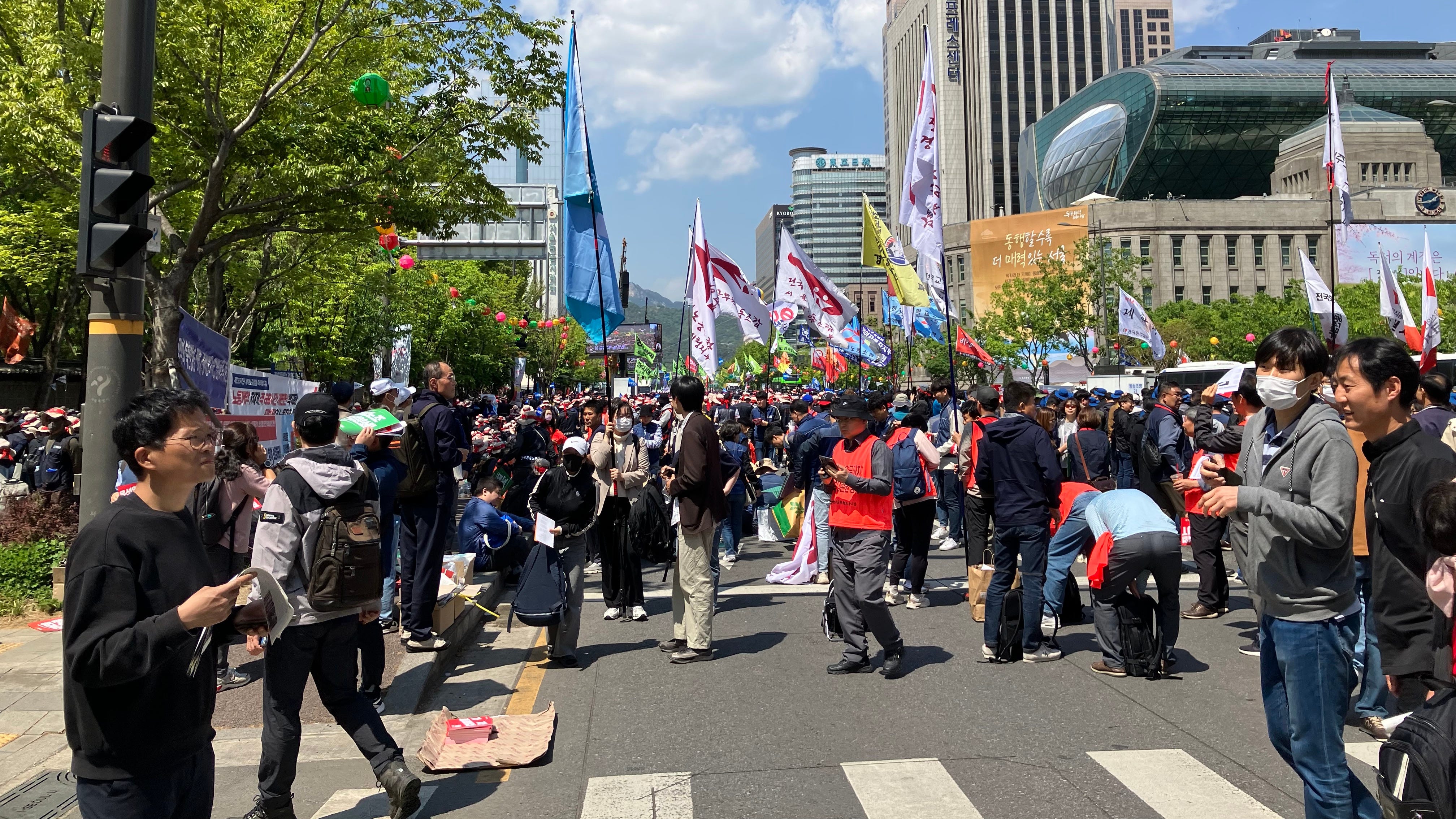
But here - it’s better with music:
This wasn’t terribly convenient timing for the bike tour I had scheduled - but inconvenience is kinda the goddamned point of labor actions and, for me, was the highlight of that tour.
After contending with the absolutely catastrophically bad government bikeshare app - somehow worse than Naver - a couple of fun historic facts came up while puttering around another set of really-similar-looking palaces:
- One of the Joseon kings killed their infant step brother by baking them alive. The guide said the 14th, but the dynasty was so fratricidal I couldn’t find the details after an exhaustive search
- Just about every palace has little guys along one corner like this
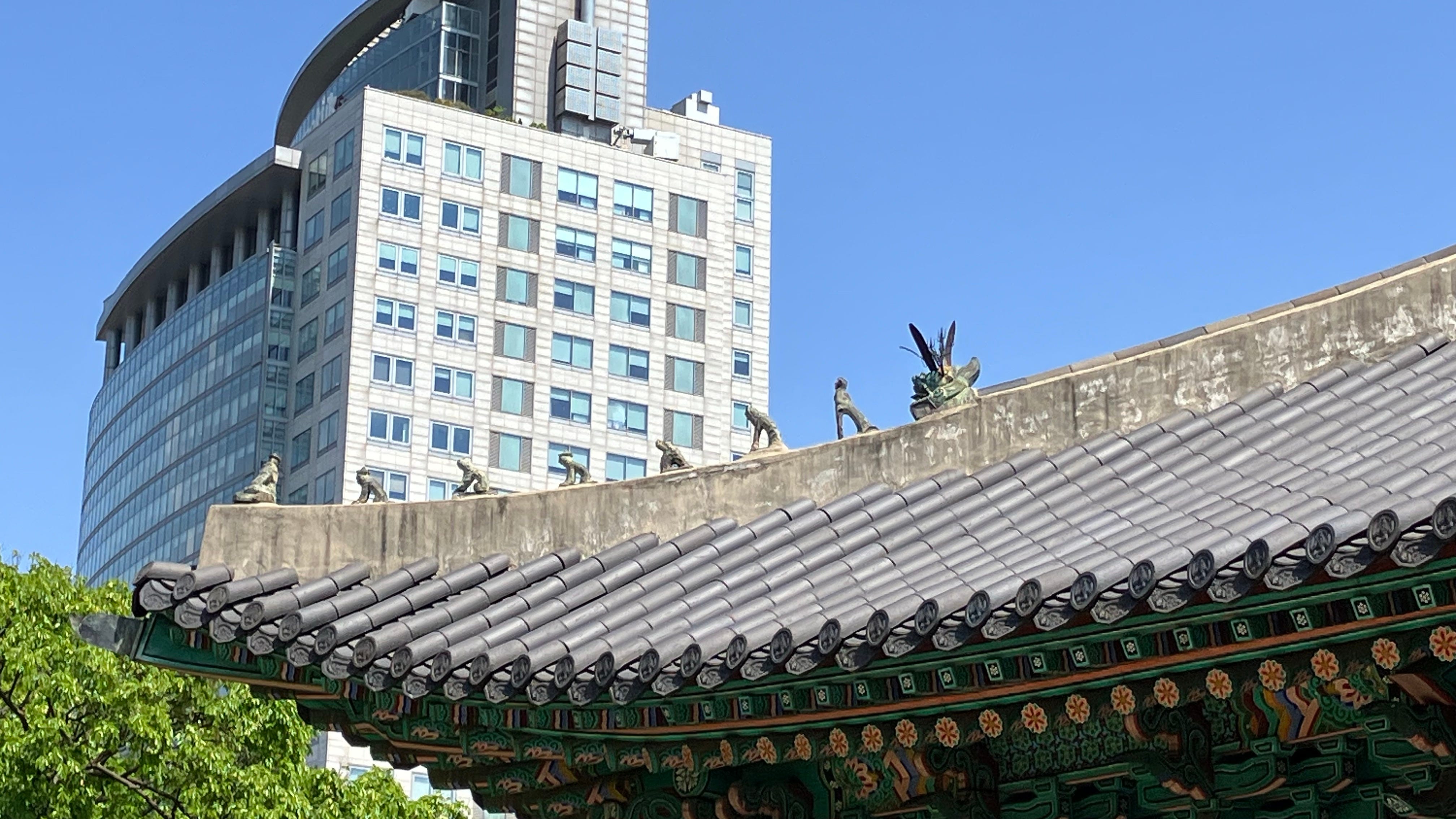
The tour guide suggested these were characters from Journey to the West, one of the greatest Chinese classics. It’s about a priest bringing Buddhism texts back to the east from central Asia. But really, the star of the show is the Monkey King (Sun Wukong), who rebels against heaven after gaining some insane powers and basically just bodies every god in the eastern canon until he is imprisoned by the literal OG Buddha. Part of his punishment is protecting the priest on his trip.
If you are like “hey - some rando fighting god(s)? this really sounds like an anime, has anyone made an anime about this?” perhaps you are acquainted with a little show called Dragon Ball Z and the main character, Son Goku, who has a monkey tail, quintessential staff, and is literally named the Japanese reading of “Sun Wukong” (孫悟空)3.
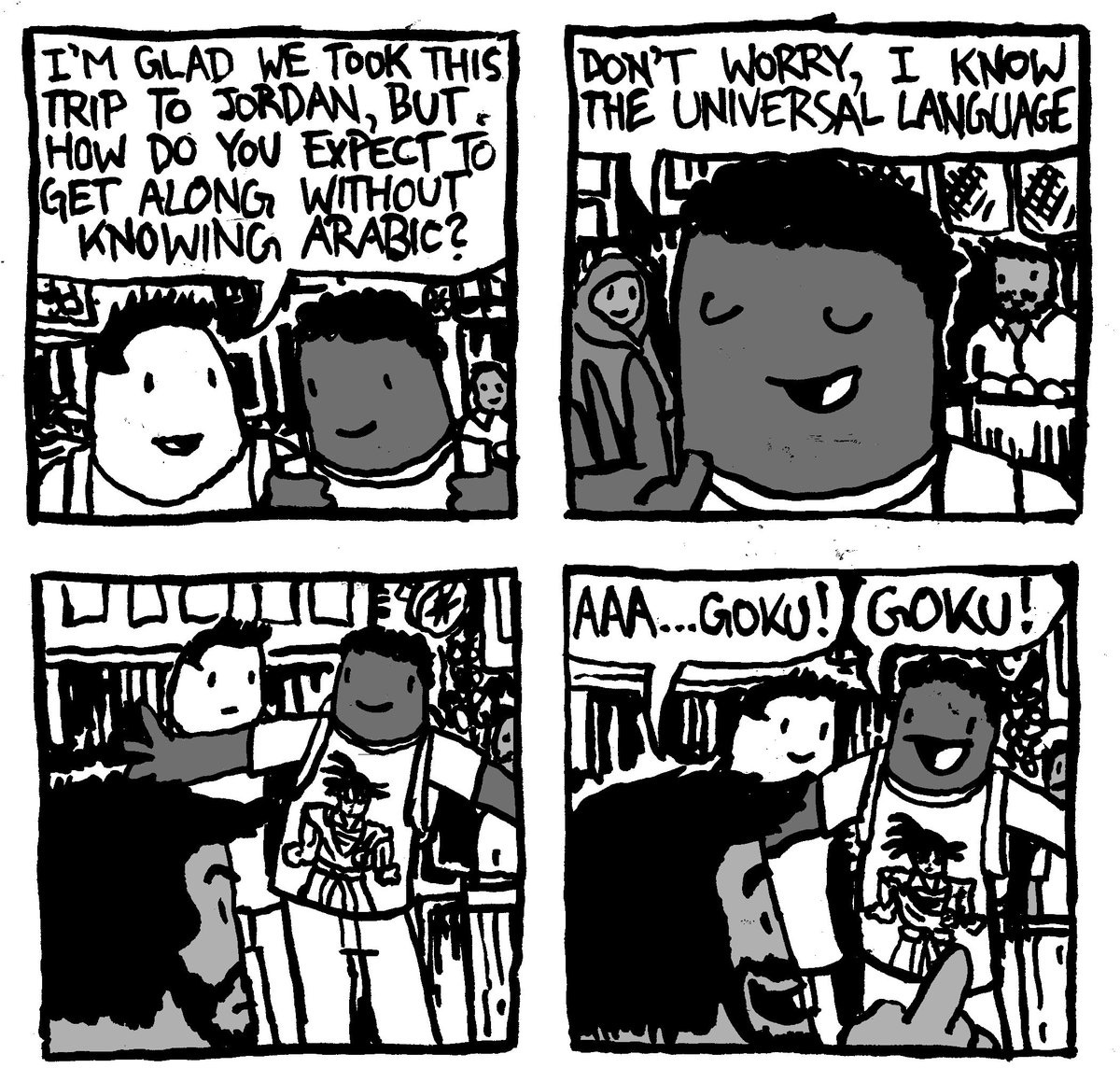
As in so many pre-modern societies, slavery was very much a thing in Korea. However, as we passed by Changdeokgung Palace, our guide mentioned that a silver lining of the Japanese invasions from 1592-1598 was the burning down of this place.
Why? Well:
The Baekjeong (Korean natives of the lowest social rank) took advantage of the lack of internal security brought on by the invasions, and set fire to changnye (Korean government offices) in which census ledgers had been kept. The destruction of land and census registers made fiscal recovery difficult since taxation and corvée labour were based on them.
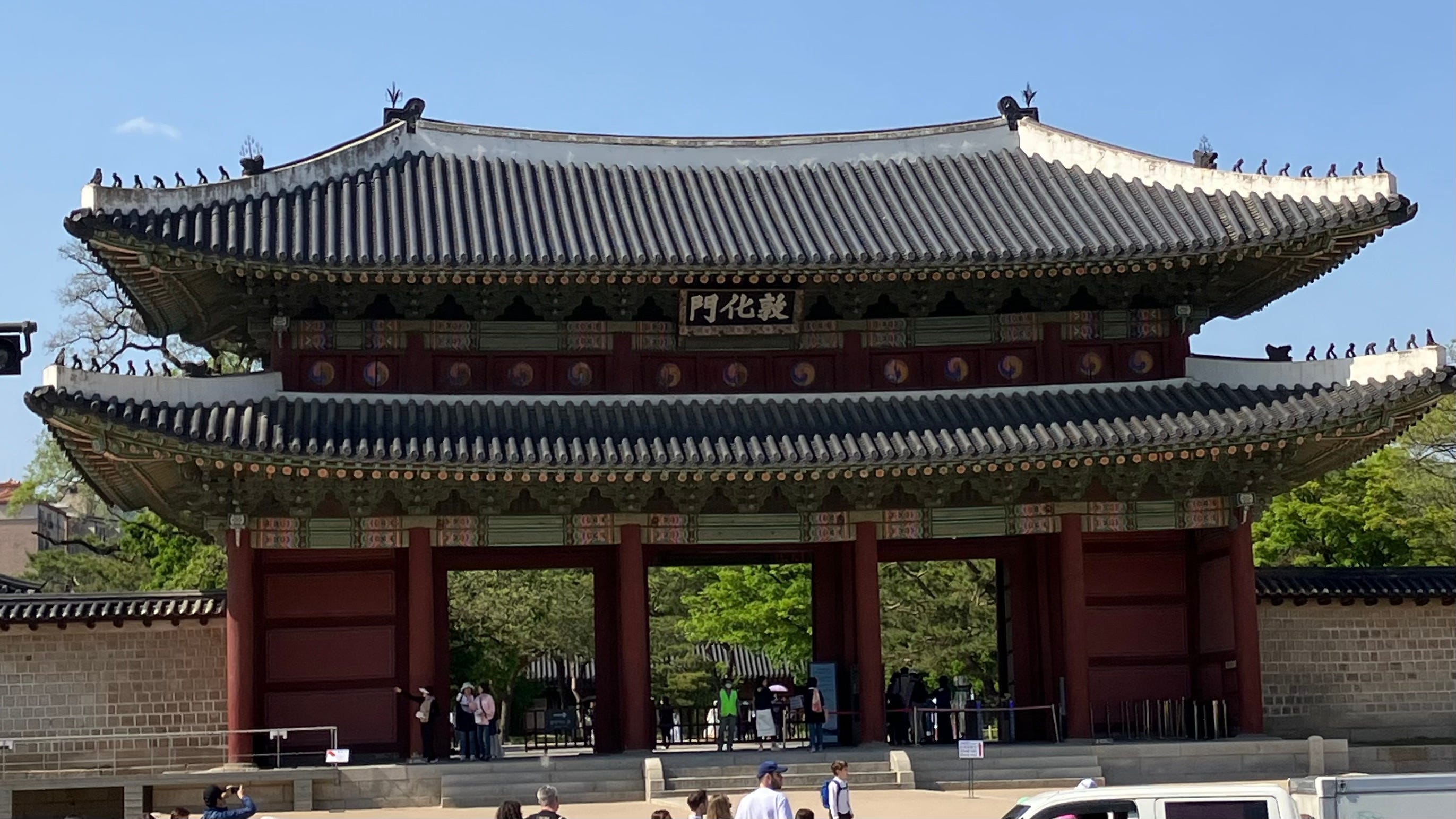
Right after burning the official records, they went to the local house of names - a thing they have here, still used by traditional families to pick the ideal names for newborns based on astrology and other factors - and all picked new names to dodge former obligations. If you perhaps wondered why there were so many very common last names in Korea - Han, Ping, Kim - this is one of the reasons. Many of these former slaves/serfs/nobi chose family names traditionally used by nobility, bureaucrats, etc.
The rest of the day was relatively uneventful. I went to a beautiful temple (Jogyesa) located about a ten minute walk from the above palace:
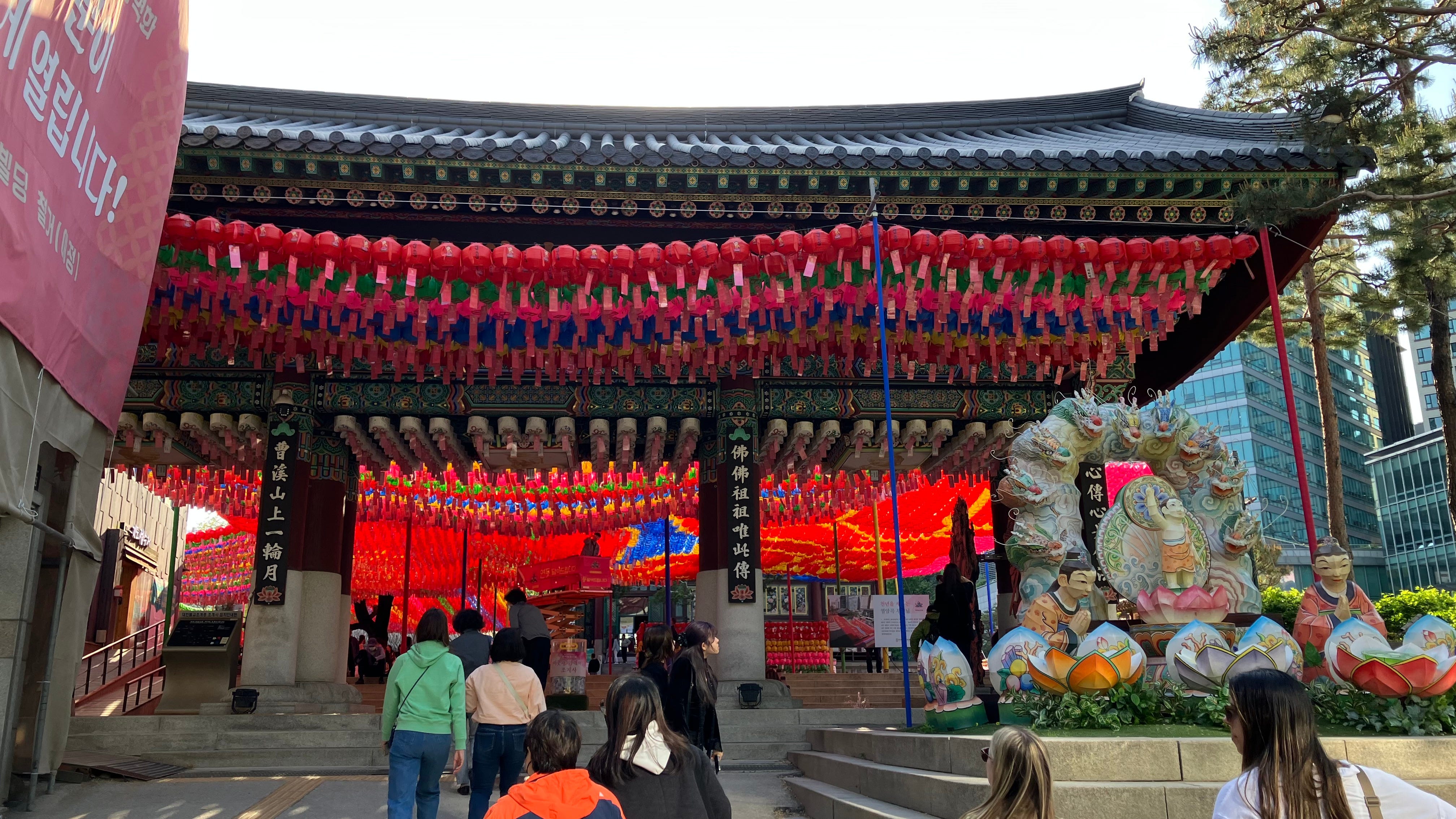
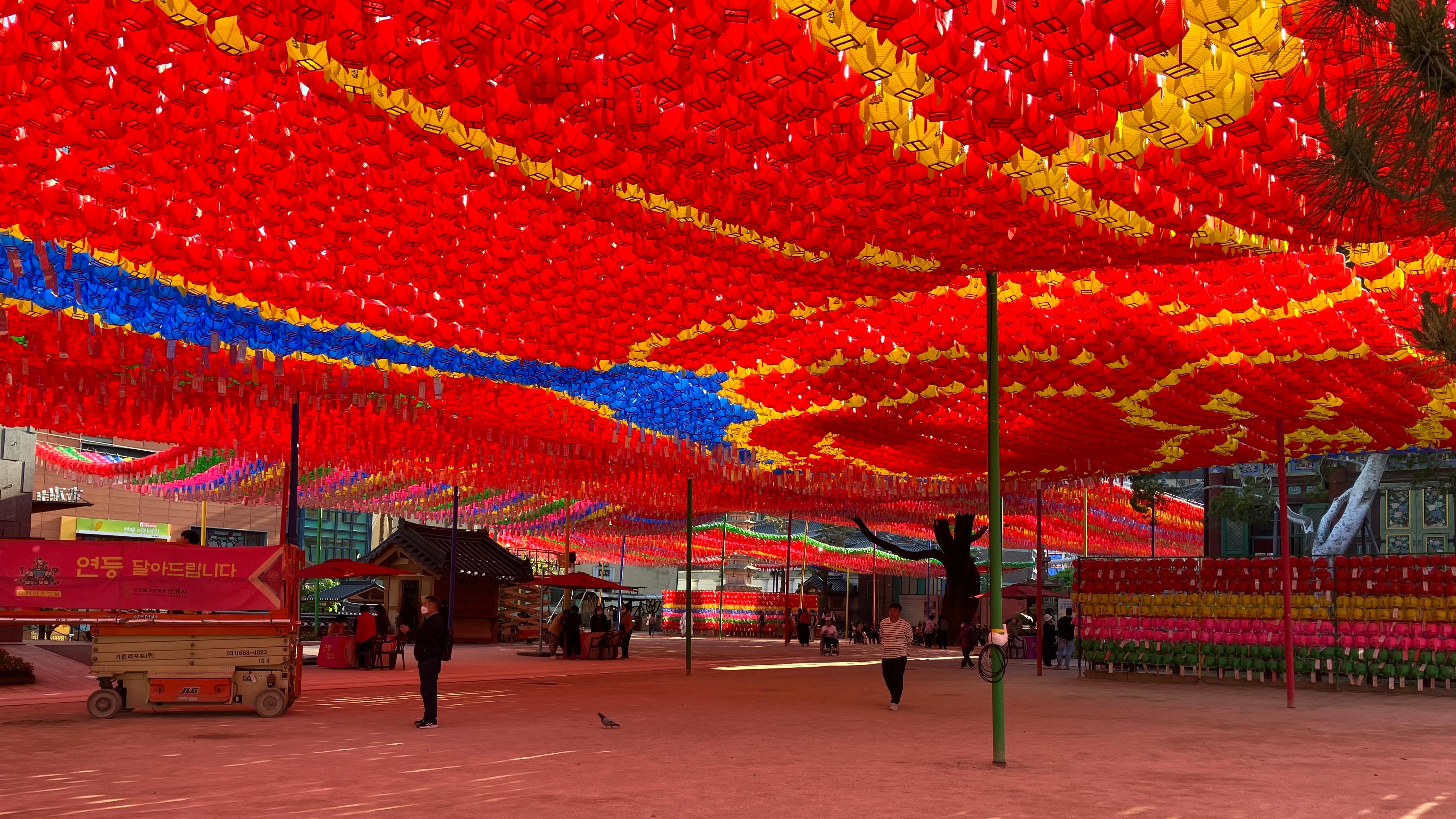
Finally, I went to a sizable third floor bar called “Shortbus”.
The music is mostly 80s: “Forever Young”, Kenny Loggins, “Do the Locomotion”. This is some gym class music, meant to produce movement from reluctant 6th graders. They shifted to something more recent later (“Flowers”, by Miley Cyrus).
I ask, and it turns out this is a “new” bar - merely 10 years old. While technically this was a foreigner or foreigner-friendly establishment, this was really only true in the sense of the owner being from Japan and the crowd also being Japanese or Japanese speakers. I had a drink and then retired to the hotel to rest up for my next stop:
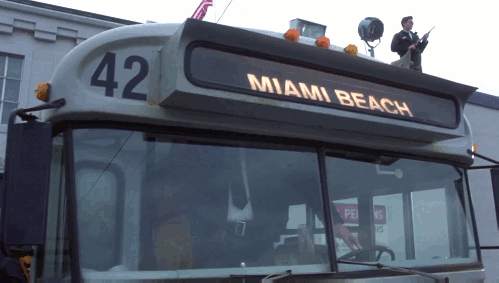
This ended up being merely a prelude to massive state violence against workers in the 1880s and beyond. It took another 50 years(!) for the United States get an 8-hour national workday, and arguably the central demand of having a living wage for eight hours of work is still not a real thing for millions of Americans. ↩
And unofficially in the United States, where President Grover Cleveland supported an official Labor Day in September as the “less inflammatory alternative” advocated by the ever triangulating dipshit racists of the Knights of Labor. ↩



